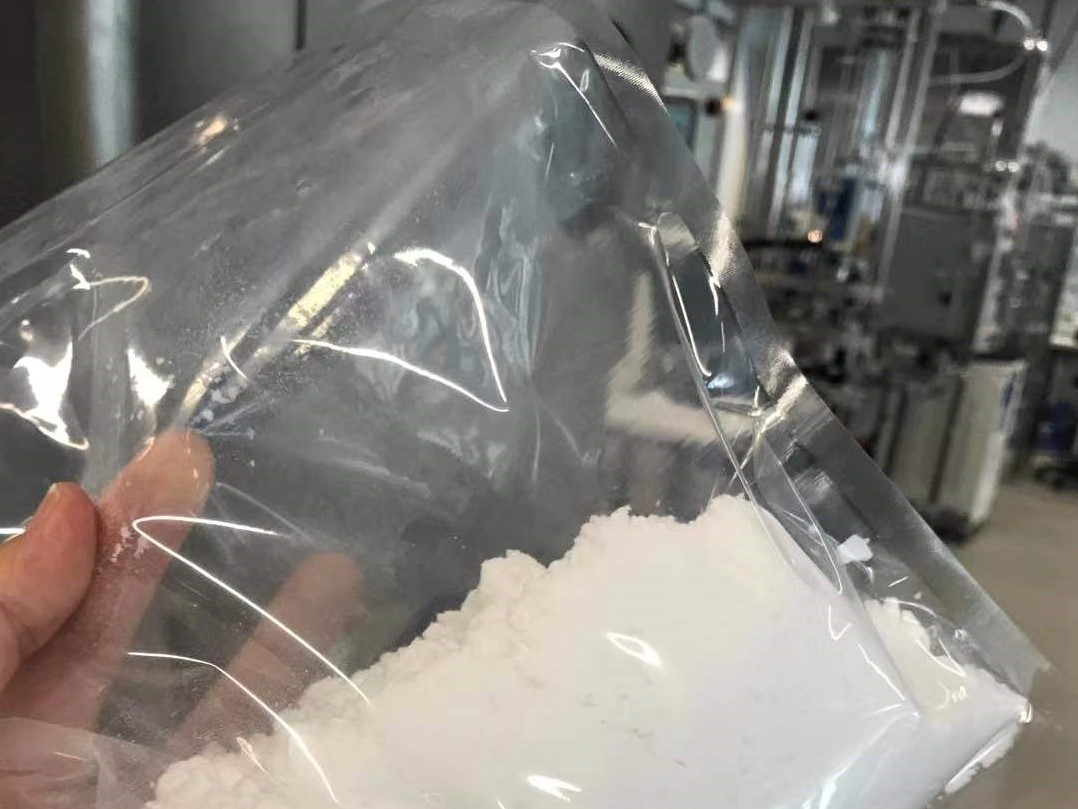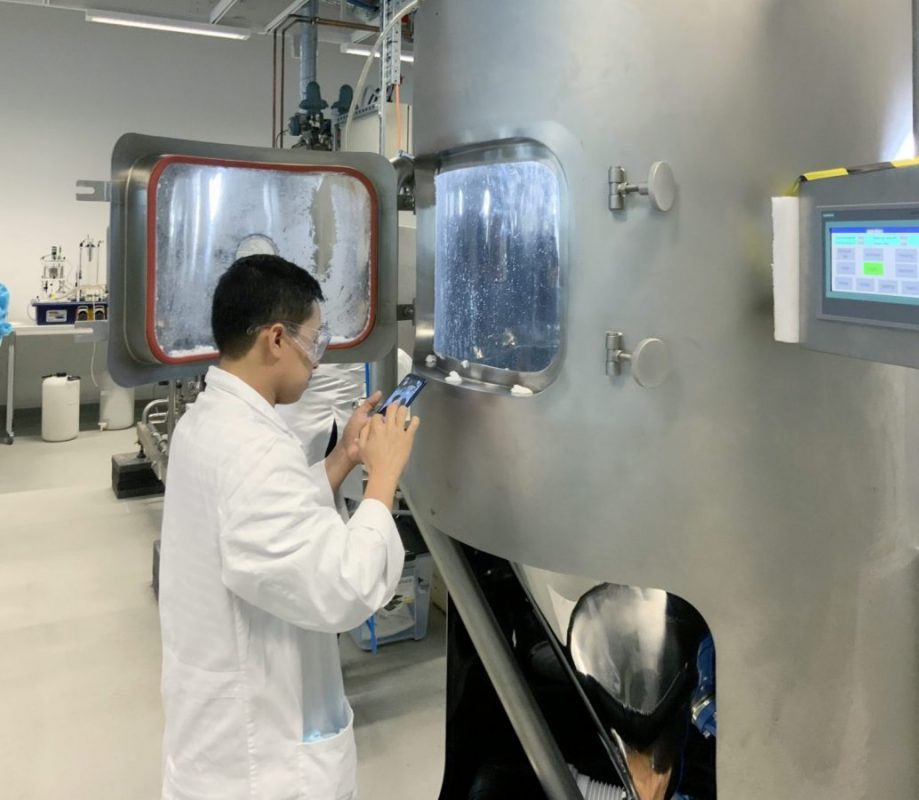The first phase of a multi-stage collaboration between researchers at UNSW and specialty magnesium compounds producer EcoMag is complete, and results are positive.
The aim of this phase was to trial the efficacy of producing high-purity powdered magnesium compounds using an industrial spray dryer. Its goal: to ensure consistent, reliable production of high-purity, high-grade magnesium compounds using this simpler, speedier process.
To test this, the project team used the UNSW’s industrial spray dryer to produce magnesium citrate powder from magnesium hydrate. The base product was made by EcoMag in its Sydney laboratory from the magnesium waste from Dampier, WA-based sea-salt extraction.
The Mg citrate is the first of several organic magnesium compounds the project team will create for EcoMag in the UNSW chemical engineering lab.
Phase 1 results
“This first trial was to answer the question, Can we produce high-grade magnesium organic compounds consistently and effectively using our spray dryer?” says project lead Cordelia Selomulya, a professor in UNSW’s School of Chemical Engineering and an expert in spray-drying dairy ingredients.
“The first-ever trial producing magnesium citrate powder using this particular spray-drying machine has been very successful.
“What we were able to produce was much better than what EcoMag had produced previously – it was less sticky, and the yield was pretty impressive. We were able to recover more than 86 per cent, and the resulting powder was 99.8 per cent pure Mg citrate – a very high level of purity,” Prof. Selomulya says. “And the process wasn’t difficult – it was actually much easier to spray-dry than milk.”

High-purity magnesium citrate powder, dried in the UNSW Sydney spray dryer. Credit: UNSW
Next steps
“EcoMag is very happy; they’re already asking us to spray-dry four other magnesium products: magnesium glycinate, lactate, gluconate and fumarate,” Prof. Selomulya says.
Currently, EcoMag sells these to an Australian-based sister company, which uses them as ingredients for a magnesium-based sleeping tonic. It’s sold online and in Priceline pharmacies, retailing for around $13 per bottle. “It contains all five of the compounds we’ll be making in the spray dryer over coming weeks,” she says.
More importantly, the UNSW spray-drying trial has given EcoMag the information it needs to scale up to commercial-level production.
“EcoMag can use the findings of this study as the basis for designing its manufacturing plants,” says Prof. Selomulya. “They’ll have to consider many things, but at least they now know that with regard to technology, spray-drying is the way to go.
“They only need something capable of producing a few hundred kilograms per hour, so one small-scale spray dryer will be enough.”
Lead image: A project team member opens the door to the UNSW School of Chemical Engineering’s industrial spray dryer, in which the team is producing high-purity magnesium citrate powder for CRC industry partner EcoMag. Credit: Anthony Battaglia/ Future Food Systems CRC


